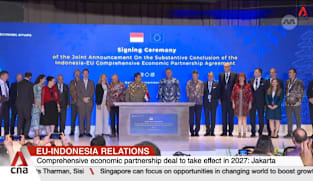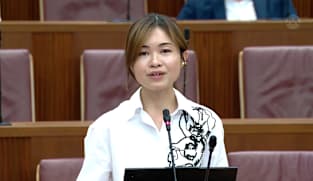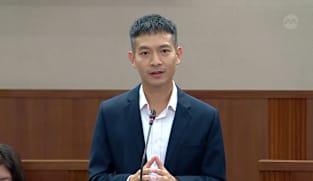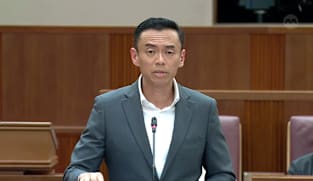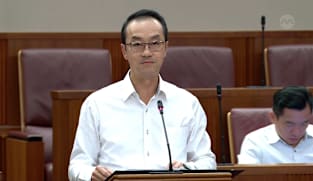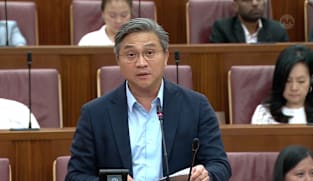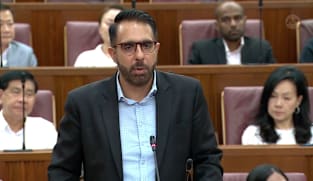Amy Khor on Resource Sustainability (Amendment) Bill
In a first in Southeast Asia, Singapore will introduce a beverage container return scheme from April 2025. A deposit of 10 cents will be collected for drinks in plastic bottles and metal cans with volumes ranging from 150ml to three litres, to be refunded fully when the empty containers are returned at designated points for recycling. Licensed supermarkets larger than 200 square metres, numbering about 400 across Singapore, will be required to set up return points, with additional points set up in other public areas. All producers - that is, importers and manufacturers of these beverage products - will have to join the scheme. Containers will have to be marked for easy identification and display a barcode for return. The scheme is expected to be run by a not-for-profit, industry-led operator and several beverage producers have already expressed interest in jointly supporting this. The return rate target will be set at 60 per cent for a start, rising to 80 per cent in the third year. At that rate, an estimated 800 million beverage containers will be collected annually. The scheme operator faces a penalty of up to S$500,000 if the target is not met. The beverage and retail industry will have a grace period of three months - till July 2025 - to clear old stock. All these details were given by Senior Minister of State for Sustainability and the Environment Amy Khor in Parliament on Tuesday (Mar 21). She said the scheme will aggregate a stream of clean, high-quality plastic and metal recyclables. It is one of three new measures to address packaging waste and food waste, which are intended to spark behavioural change and a shift from a throwaway culture to more mindful consumption. One other measure is a disposable carrier bag charge at supermarkets. Starting from Jul 3, larger supermarkets with an annual turnover of more than S$100 million will be required to charge a minimum of five cents per bag provided to customers. They will also have to publish information on the number of bags issued, the amount of proceeds collected and how those proceeds are used. Finally, a food waste reporting framework will be imposed for industrial and commercial premises. This will complement food waste segregation and treatment requirements that had been introduced earlier. Implementation will begin from 1 January 2024 for new buildings and progressively from the second half of 2025 for existing buildings. There will also be more flexibility to use innovative treatment methods off-site if they transform food waste into higher-value products, such as waste bread being used to make beverages.
In a first in Southeast Asia, Singapore will introduce a beverage container return scheme from April 2025. A deposit of 10 cents will be collected for drinks in plastic bottles and metal cans with volumes ranging from 150ml to three litres, to be refunded fully when the empty containers are returned at designated points for recycling. Licensed supermarkets larger than 200 square metres, numbering about 400 across Singapore, will be required to set up return points, with additional points set up in other public areas. All producers - that is, importers and manufacturers of these beverage products - will have to join the scheme. Containers will have to be marked for easy identification and display a barcode for return. The scheme is expected to be run by a not-for-profit, industry-led operator and several beverage producers have already expressed interest in jointly supporting this. The return rate target will be set at 60 per cent for a start, rising to 80 per cent in the third year. At that rate, an estimated 800 million beverage containers will be collected annually. The scheme operator faces a penalty of up to S$500,000 if the target is not met. The beverage and retail industry will have a grace period of three months - till July 2025 - to clear old stock. All these details were given by Senior Minister of State for Sustainability and the Environment Amy Khor in Parliament on Tuesday (Mar 21). She said the scheme will aggregate a stream of clean, high-quality plastic and metal recyclables. It is one of three new measures to address packaging waste and food waste, which are intended to spark behavioural change and a shift from a throwaway culture to more mindful consumption. One other measure is a disposable carrier bag charge at supermarkets. Starting from Jul 3, larger supermarkets with an annual turnover of more than S$100 million will be required to charge a minimum of five cents per bag provided to customers. They will also have to publish information on the number of bags issued, the amount of proceeds collected and how those proceeds are used. Finally, a food waste reporting framework will be imposed for industrial and commercial premises. This will complement food waste segregation and treatment requirements that had been introduced earlier. Implementation will begin from 1 January 2024 for new buildings and progressively from the second half of 2025 for existing buildings. There will also be more flexibility to use innovative treatment methods off-site if they transform food waste into higher-value products, such as waste bread being used to make beverages.








